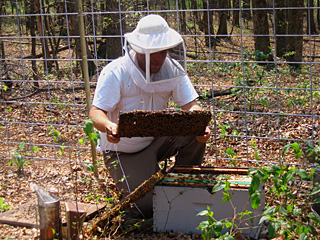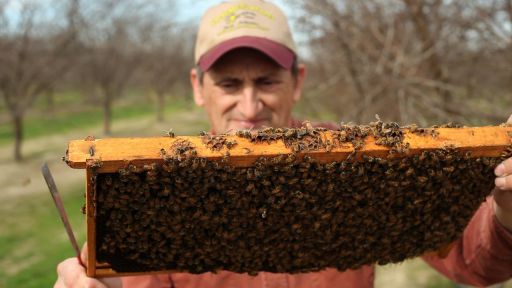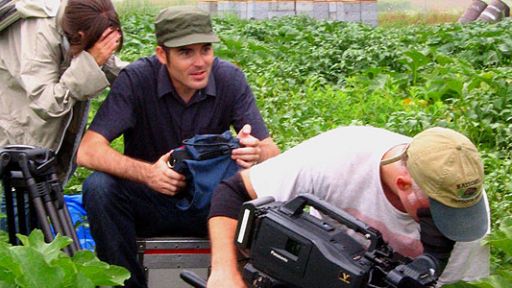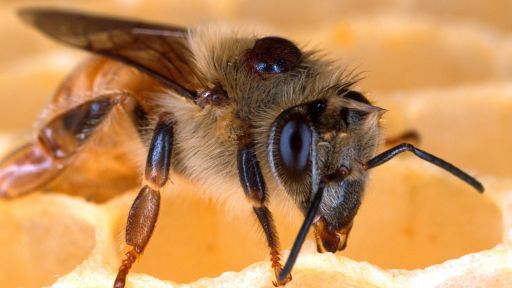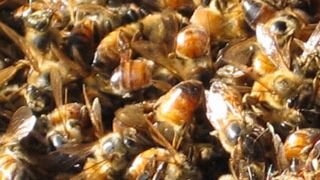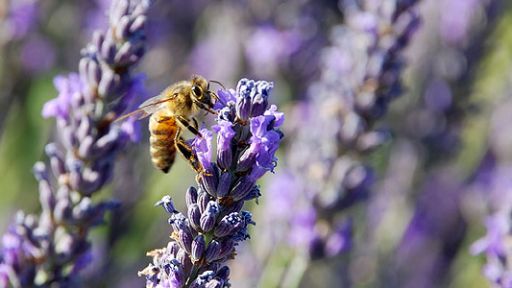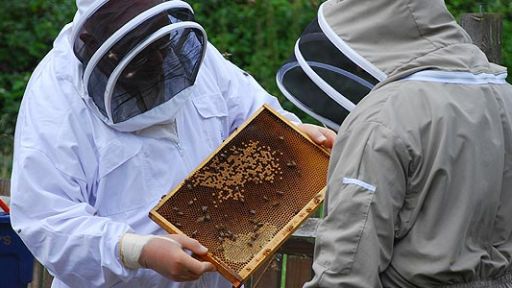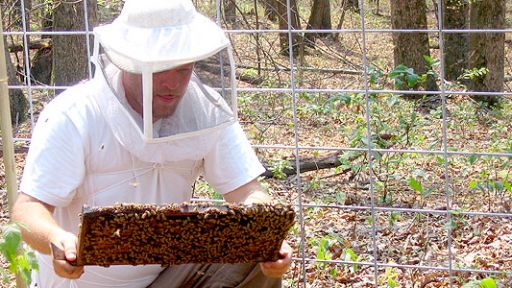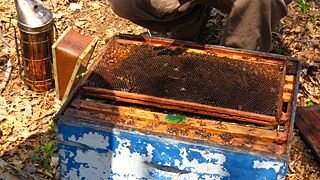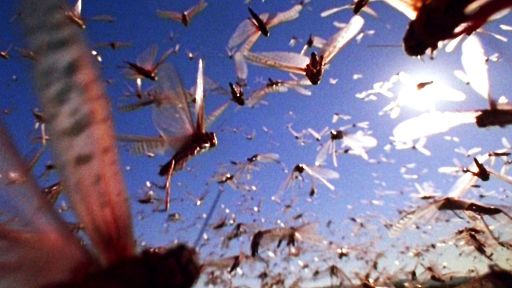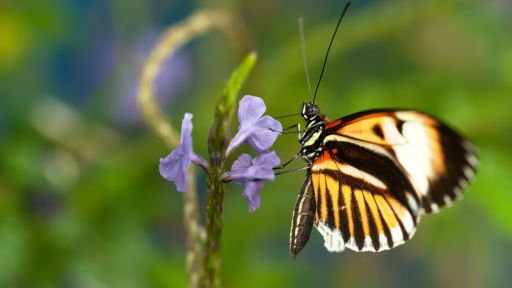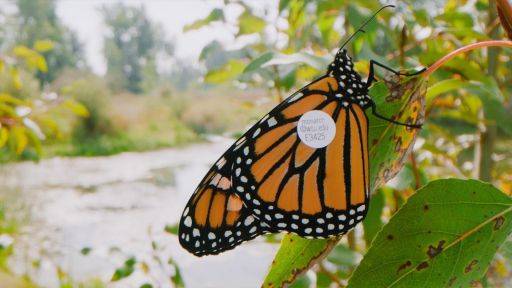While researchers probe deeper into understanding CCD, or colony collapse disorder, and beekeepers work harder to improve bee health, ordinary citizens can help the honeybee too.
Go Retro — Become a Backyard Beekeeper
Over the years, our diets have increased the demand for a constant stream of all-season fruits and veggies. Such demand hasn’t bypassed the bees. It’s turned bee pollination into a year-round service and beekeeping into a commercial industry. Today, there are half as many beekeepers as there were two decades ago, and the remaining beekeepers are mostly large-scale pollination services with thousands of hives and millions of bees. But there was a time when beekeeping was much more of a hobby than a commercial industry. “Beekeeping is a graying hobby,” says Jeff Pettis of the Dept of Agriculture. Joining the ranks of backyard beekeepers can not only infuse the dying hobby with life, it can strengthen the bee gene pool by adding healthy local bees to the mix.
If you’re interested in becoming a backyard beekeeper, experts recommend starting with a local beekeepers’ association to learn about keeping bees alive and healthy. It’s important that bees are adapted to the local climate, so you’ll want to start with a local source for bees. Aside from contributing to the bee population, just two hives can pollinate an entire mid-sized residential garden. You might just find yourself with a lifelong hobby. For most people, beekeeping grows into a passion.
Get Closer to Nature
If you decide to pass putting on a beekeeper’s suit, merely keeping a backyard bee garden is another good deed you can do for the honeybees. With rapid urban development limiting their foraging habitat, backyard gardens can offer a welcome supply of nectar and pollen for honeybees.
Cultivating plants that will attract bees is the most important task of a bee gardener. Choose flowers that bloom successively over the spring, summer, and fall seasons such as coreopsis, Russian sage, or germander in order to provide pollen and nectar resources to the native bees of all seasons. If you’re not sure what to choose, you can always check with a local garden center for their advice on “bee-friendly” florals. To improve bee visitation, the garden should contain large patches of like flowers planted in close proximity to one another. Diversity is a key factor in keeping bee gardens buzzing. Researchers have found that more bees will be drawn to gardens with ten or more species of attractive plants.
As you diversify your garden, keep part of it wild because bees prefer that to a manicured space. Go for a “planted by nature” effect rather than a perfectly pruned garden. Remember: bees don’t discriminate between weeds and cultivated flowers, so let those dandelions grow.
And of course keep your bee garden free of pesticides — a danger in any garden. Some pesticides can kill the bee before it returns to the hive; other pesticides get carried back and can harm the rest of the hive.
If, after all of your hard work, you’re still not seeing bees in your garden, it’s not a wasted effort. Growing a pesticide-free garden is also good for you if you’re growing fruits and vegetables. Robert Mendela, President of the Backyard Beekeepers Association, says, “Even if there isn’t a hive of honeybees within a couple of miles of your garden, gardening brings the grower closer to nature and closer to realizing that what s/he grows is more nutritious and tasty than the ‘factory-ized,’ perfect, unblemished, and perhaps pesticide-covered” produce.
Even if you don’t have a green thumb, buying pesticide-free foods at the market also protects humans and bees from pesticide poisons.
Give the Bees a Voice
“Something the average person can do,” says Mendela, “is to write to their senators and representatives in congress on the federal level and to do the same on the state level to support funding of honeybee research. This support has fallen off over the years.”
The news focus on CCD makes it an ideal time to put pressure on politicians to reinstate laws that used to prevent importing bees into the country and transporting them across state borders.
Large or small, any effort you make to help bees or increase awareness is a step towards healthy bees, healthy crops, and, consequently, healthy humans.

